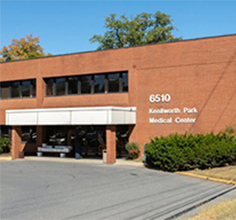
Nestled at the front of your neck lies the thyroid gland – a small, butterfly-shaped organ that plays a monumental role in your body’s overall health. Although small, the thyroid gland is a powerhouse producing hormones that influence nearly every organ in your body.
When the thyroid is functioning properly, it helps regulate metabolism, energy levels, and even mood. However, when something goes wrong, thyroid disease can affect numerous bodily functions.
In this brief article brought to you by Southern Maryland Medical Group, we take a closer look at the thyroid gland, thyroid disease, and the treatment and management options available. If you’d rather consult with a licensed primary care physician, then call Southern Maryland Medical Group to schedule a convenient appointment today.
The thyroid gland is part of the endocrine system, which is responsible for producing hormones that regulate various bodily functions. These hormones travel through your bloodstream to reach organs and regulate metabolism, heart rate, body temperature, and even how quickly your body uses energy.
In simpler terms, your thyroid acts as a kind of "thermostat" for your body by making sure that your organs are functioning at the right speed and intensity. When the thyroid is balanced, you likely won’t notice it working at all. But when it’s out of balance, the effects can be far-reaching.
Thyroid disease occurs when the thyroid gland either produces too much hormone (hyperthyroidism) or too little (hypothyroidism). Both conditions can have significant consequences for your health.
Hyperthyroidism is when the thyroid gland produces too much hormone, causing your body's metabolism to speed up. This can lead to symptoms such as:
On the flip side, hypothyroidism occurs when the thyroid doesn’t produce enough hormones, leading to a slowdown in metabolism. Symptoms of hypothyroidism may include:
The thyroid’s influence on various organs means that thyroid disease can affect multiple systems in the body. Left untreated, hyperthyroidism can lead to serious issues such as heart problems, osteoporosis, and eye problems (particularly with Graves' disease). Hypothyroidism, if untreated, can result in complications like heart disease, infertility, and in severe cases, a life-threatening condition known as myxedema coma.
Both conditions can also have a profound impact on mental health, contributing to mood swings, anxiety, depression, and cognitive difficulties.
The good news is that thyroid disease is often manageable with the right treatment. Antithyroid medications, beta-blockers, thyroid hormone replacement therapy, and surgery are just some of the options available.
In addition to medical treatments, there are lifestyle changes that can help manage thyroid disease. These include eating a healthy diet, staying active, managing stress in a healthy way, and keeping up with your visits to the primary care doctors in Clinton.
The information on this page should not be taken as medical advice. It is always advisable to consult a licensed physician with questions and concerns regarding your health. Residents in the area are welcomed to schedule an appointment by calling Southern Maryland Medical Group.
Southern Maryland Medical Group has 3 convenient locations to provide professional medical care services in the Southern Maryland area. Call or schedule an appointment with one of our locations to get medical care help.

5801 Allentown Road, Suite 400 Camp Spring, MD 20746
Phone: 301-868- 0150
Billing Inquiries: 301-552-1270
Fax: 301-868-0243

7500 Greenway Center, Dr #1200 Greenbelt, MD 20770
Phone: 301-486-7580
Billing Inquiries: 301-552-1270
Fax: 301-486-7581

6510 Kenilworth Ave, Ste 1400, Riverdale MD 20737
Phone: 301-618-0771
Billing Inquiries: 301-552-1270
Fax: 301-618-0772